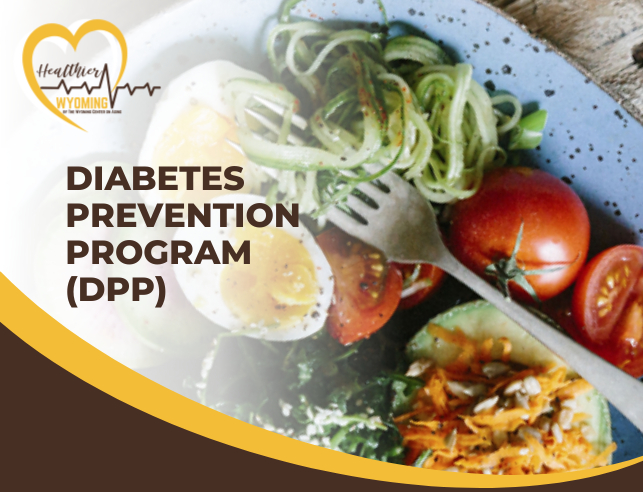CDC (Centers for Disease Control) Recognized
Diabetes Prevention Programs in Wyoming are recognized by CDC, and use a CDC approved curriculum and trained coaches. CDC program review ensures that these lifestyle change programs meet quality standards. CDC recognized programs must submit data on participant attendance, changes in weight, and physical activity. To learn more about the CDC Recognition Program standards and Operating Procedures click here.
Patient Referrals to DPP have Benefits to Your Practice
Referrals to a lifestyle change program, like DPP, can reinforce information on weight loss, diet, and exercise you provide patients during office visits. DPP can increase patient understanding of healthy lifestyles, heart health, and diabetes. To refer patients, use the PreventT2 Referral Form.
Statictics
Nationwide Statistics
Diabetes
10.5% of the US population (34.2 million people) have diabetes
26.9 million people in the US were diagnosed with diabetes in 2020
21.4% of the US population (7.3 million people) have undiagnosed diabetes
Prediabetes
34.5% of the adult US population (88 million people) aged 18 years or older have prediabetes
24.2 million people aged 65 years or older have prediabetes [2].
Prediabetes in Wyoming
1 in 3 adults are prediabetic
84% don't know they have prediabetes [3]
Find out more Diabetes Statistics by visiting the 2024 National Diabetes Statistics Report or get the Spanish version: Informe Nacional de Estadísticas de la Diabetes.
Foundational Studies
General Foundational Studies
Foundational Studies For Pharmacy Providers
Foundational Studies For Clinicians
Provider Toolkits and Resources
Educational Opportunities from Healthier Wyoming
PreventT2 Curriculum and handouts
CDC developed PreventT2 Curriculum and handouts. Available in English or Spanish.
Use this Impact Toolkit to project the health and economic effects of the National DPP lifestyle change program on your population at risk for diabetes.
Action Guide for Community Pharmacists
This guide is designed to help community pharmacists and members of the pharmacy workforce—including pharmacy technicians, residents, and students—reach people at high risk of developing type 2 diabetes who could benefit from DPP.



